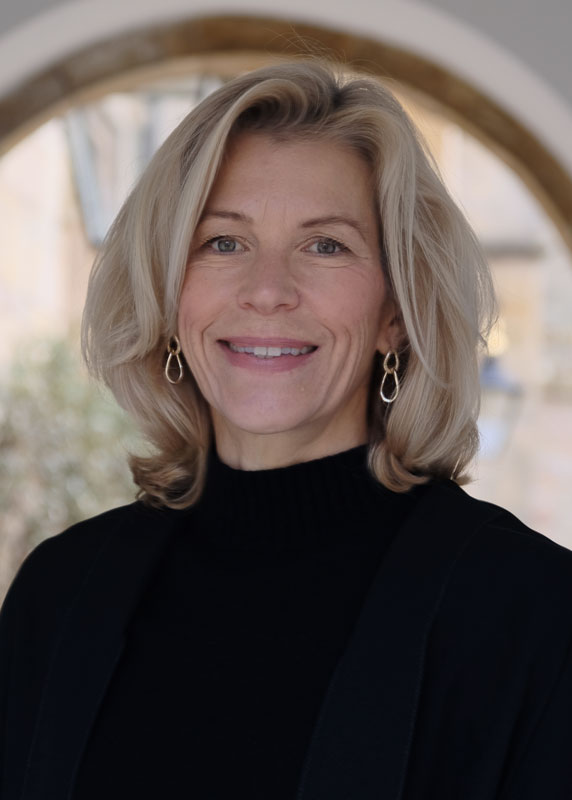Professor Jennifer Howard-Grenville, Fellow-Commoner at Trinity Hall and Diageo Professor of Organisation Studies at the Cambridge Judge Business School, has been made a Fellow of the prestigious British Academy for the humanities and social sciences. She is one of 12 University of Cambridge academics elected this year. A total of 92 distinguished scholars have been elected to the fellowship in recognition of their work in fields ranging from medieval history to international relations.
Fellow-Commoner recognised by the British Academy
Posted:
21 Jul 2025

Professor Howard-Grenville’s research interests include business transformation for sustainability, organisational change, organisational culture, identity and routines, and future of work. She has conducted in-depth qualitative studies in a variety of sectors, including manufacturing, apparel, and energy, has published more than 40 academic journal articles and several books, and is active in advisory work. She is Head of the Organisational Theory and Information Systems subject group at Cambridge Judge Business School, which is engaged with cross-disciplinary themes including leadership.
Speaking about her election, Professor Howard-Grenville said: “I am deeply honoured to have been elected as a Fellow of the British Academy. I join a community of bold thinkers committed to using evidence to explore and inform the challenges of our times. As an organisational scholar focusing on business sustainability, I am convinced that the multi-level and multi-disciplinary approaches of the social sciences are essential to informing the exciting transitions ahead in energy and industry, and for building resilient businesses and societies.”
Founded in 1902, the British Academy is the UK’s national academy for the humanities and social sciences. It is a Fellowship consisting of over 1,700 of the leading minds in these subjects from the UK and overseas.
Mary Hockaday, Master of Trinity Hall, said: “I am delighted to congratulate Professor Howard-Grenville on being elected as a Fellow of the British Academy. Election is a mark of great distinction. It is excellent to see her work on the important field of business transformation for sustainability and her research into the future of work recognised in this way.”
The Cambridge academics made Fellows of the Academy this year are:
- Professor Jeremy Adelman (Faculty of History; Global History Lab; Darwin College)
- Professor Anthony Bale (Faculty of English; Girton College)
- Professor Annabel Brett (Faculty of History; Gonville and Caius College)
- Professor Hasok Chang (Dept. of History and Philosophy of Science; Clare Hall)
- Professor Jennifer Howard-Grenville (Cambridge Judge Business School; Trinity Hall)
- Professor Barak Kushner (Faculty of Asian and Middle Eastern Studies; Corpus Christi College)
- Professor Marta Mirazón Lahr (Dept. of Archaeology, Clare College)
- Professor Yael Navaro (Dept. of Social Anthropology; Newnham College)
- Professor Joanna Page (Faculty of Modern and Medieval Languages and Linguistics; Centre of Latin American Studies; Robinson College)
- Professor Clare Pettitt (Faculty of English; Emmanuel College)
- Professor Diane Reay (Faculty of Education)
- Professor John Robb (Dept. of Archaeology; Peterhouse)
Current Fellows include the classicist Professor Dame Mary Beard, the historian Professor Sir Simon Schama and philosopher Professor Baroness Onora O’Neill, while previous Fellows include Dame Frances Yates, Sir Winston Churchill, Seamus Heaney and Beatrice Webb. The Academy is also a funder of both national and international research, as well as a forum for debate and public engagement.
In 2025, a total of 58 UK Fellows, 30 International Fellows and four Honorary Fellows have been elected to the British Academy Fellowship.
Welcoming the Fellows, Professor Susan J. Smith PBA, new President of the British Academy, said: “One of my first acts as the incoming President of the British Academy is to welcome this year’s newly elected Fellows. What a line-up! With specialisms ranging from the neuroscience of memory to the power of music and the structural causes of poverty, they represent the very best of the humanities and social sciences. They bring years of experience, evidence-based arguments and innovative thinking to the profound challenges of our age: managing the economy, enabling democracy, and securing the quality of human life.
“This year, we have increased the number of new Fellows by nearly ten per cent to cover some spaces between disciplines. Champions of research excellence, every new Fellow enlarges our capacity to interpret the past, understand the present, and shape resilient, sustainable futures. It is a privilege to extend my warmest congratulations to them all.”